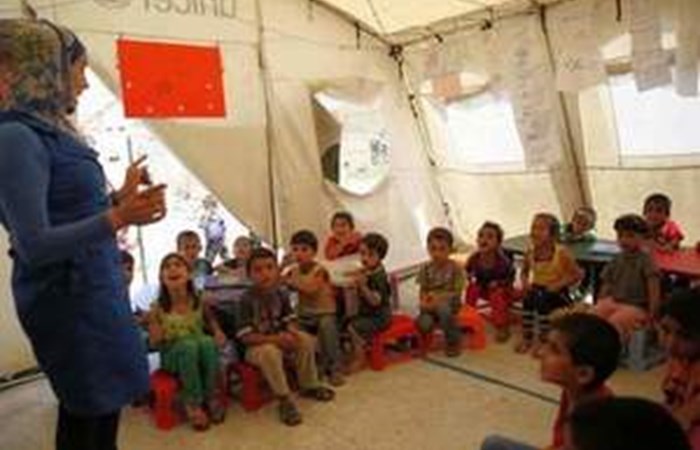Foreign and Commonwealth Office

Who are the HNC?
The HNC is an umbrella organisation formed at the end of 2015 to represent the moderate political and military groups that oppose the Asad regime. Their membership includes Syrian groups ranging from Damascus-based oppositionists to moderate armed opposition groups. Members reflect the diversity and views of Syrian society. All members are committed to a negotiated political settlement based on the Geneva Communiqu. The Geneva Communiqu was issued on 30 June 2012 and outlines the rules for a political transition. It includes things like ensuring that it is delivered in a climate of safety, stability and calm. It also outlines the key steps in the transition like establishing a transitional governing body and ensuring the participation of all groups and segments of society in Syria. The Geneva Communiqu was adopted by the UN Security Council in Resolution 2118. The HNC represents the Syrian opposition in United Nations negotiations.
What is their vision for Syria?
The HNC wants Syria to have: democratic elections, a new Constitution to protect human rights for all, full participation of everyone in society (including women), freedom of the press, security forces that people can trust to keep them safe, and a permanent end to the tyranny of the Asad regime.
How will they achieve this?
Their first step is to seek the protection of all civilians, to end the war and stop the barrel bombs being dropped on their own population. Only then can they take the necessary steps towards a peaceful transfer of power to an inclusive and accountable Transitional Governing Body (TGB). The transitional government will rule whilst a new government is democratically elected. The newly elected government will provide peace and security for all Syrians.
Why does the UK support the HNC and not Asad?
The UK believes that political transition is the only way to build a stable future for Syria. The Asad regime is directly responsible for the crisis in Syria. As many as 400,000 Syrians have died so Asad can hold on to power; with 85-90% of civilian deaths being the responsibility of the regime. The barbarity of Asads regime the barrel bombs, the chlorine gas attacks, and the siege tactics is the main driver of the refugee crisis. Asads rule also encourages the growth of extremist groups such as the Islamic State (Daesh). Daesh will not be defeated while Asad remains in power. The UKs goal is to establish a government that can be worked with to tackle Daesh and other extremists. This makes a political settlement and transition away from Asad more urgent.
The UK has and remains at the forefront of international efforts to address the Syria crisis. The UKs membership of the UN Security Council and International Syria Support Group is used to call for adherence to the cessation of hostilities and full humanitarian access. The UK has committed 2.3bn of humanitarian aid to the region since the start of the conflict. A range of support is provided to Syrians, including to the moderate opposition. UK support helps to save lives, bolster civil society, counter extremism and promote human rights and accountability. The UK does this to help lay the foundations for a more peaceful and democratic future. You can read more about UK support to Syria here.
